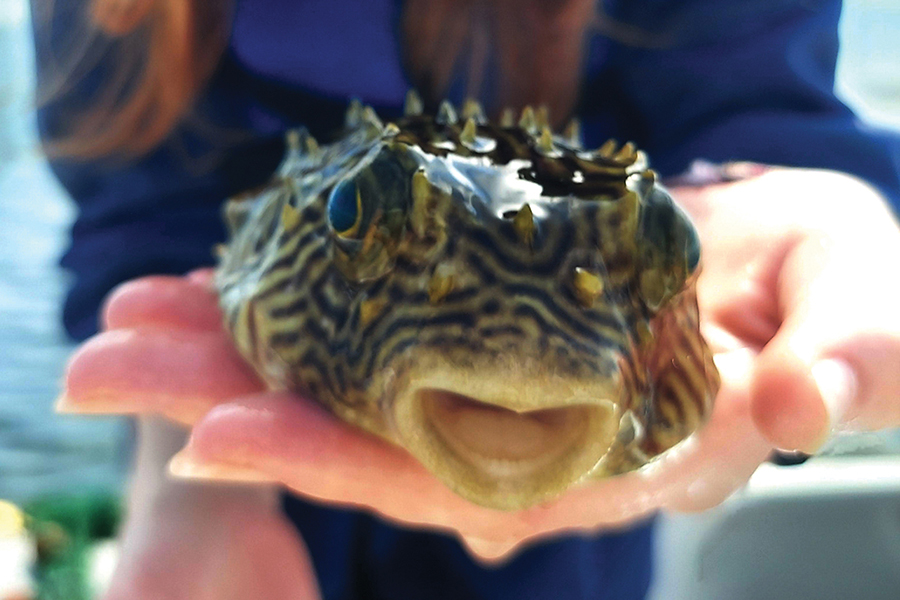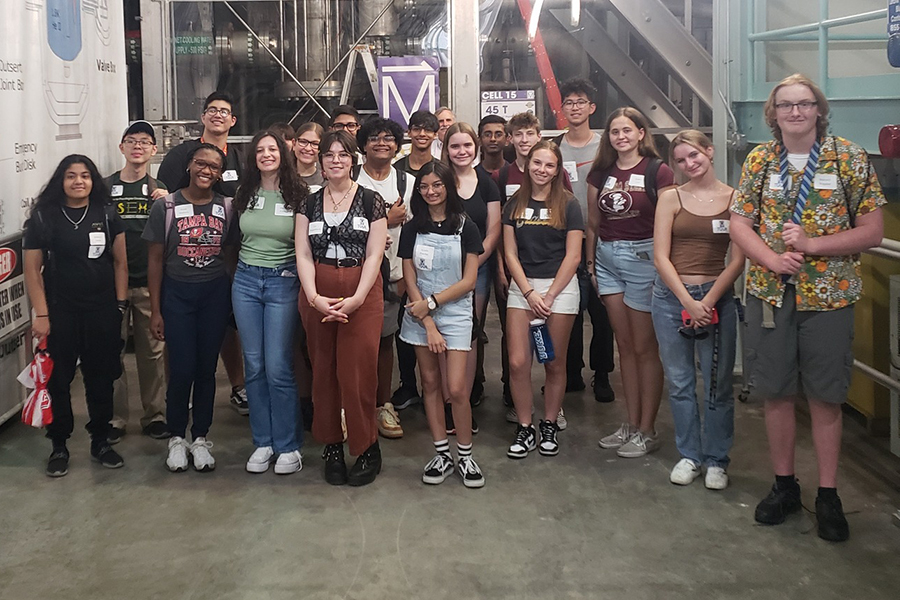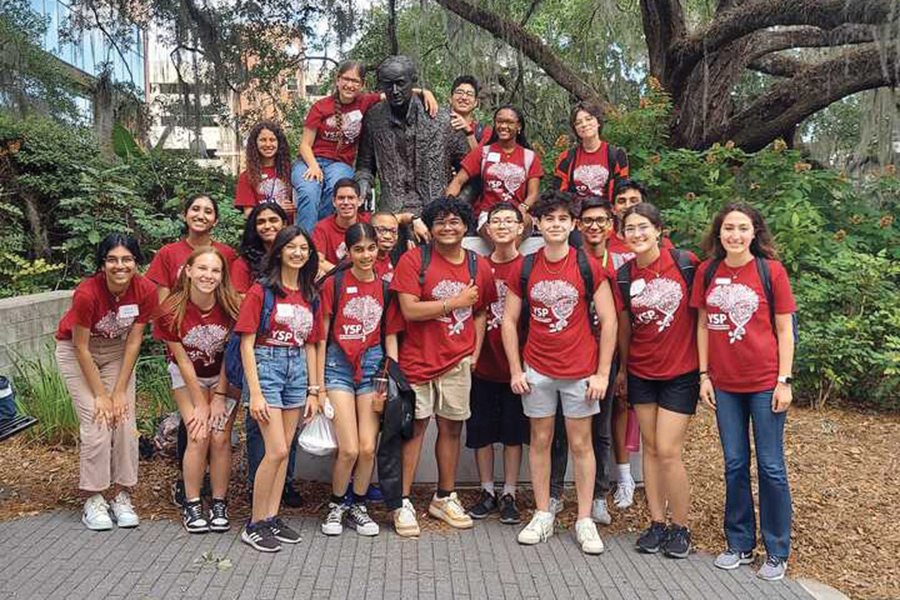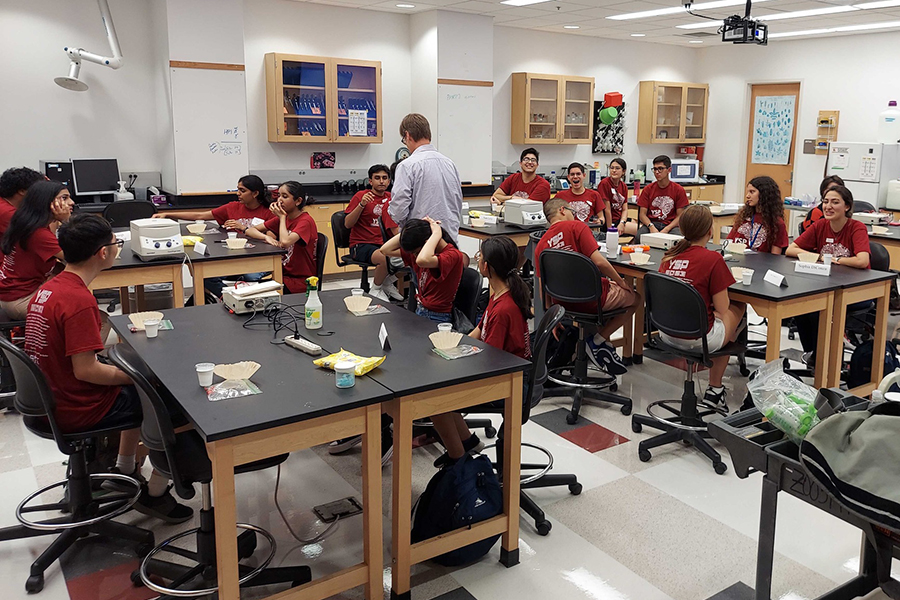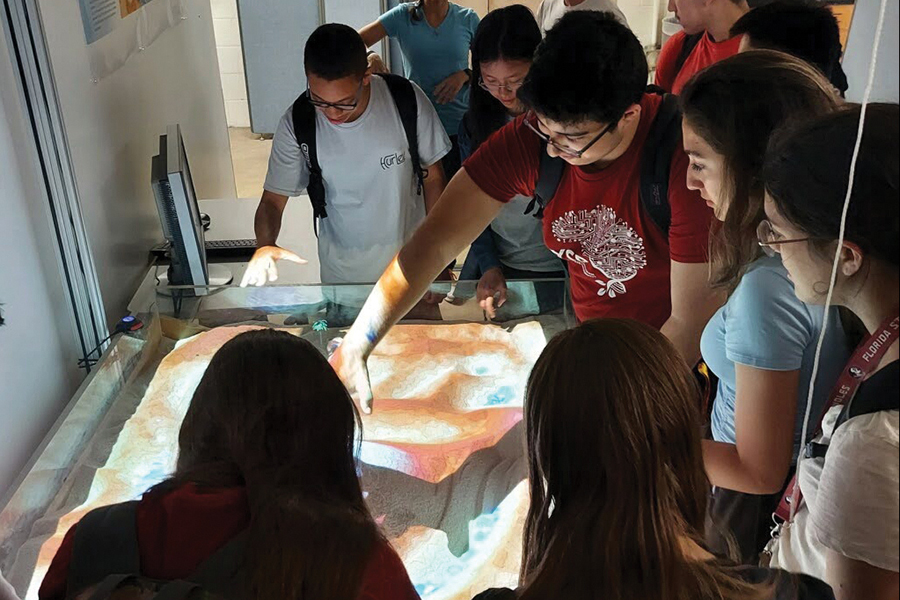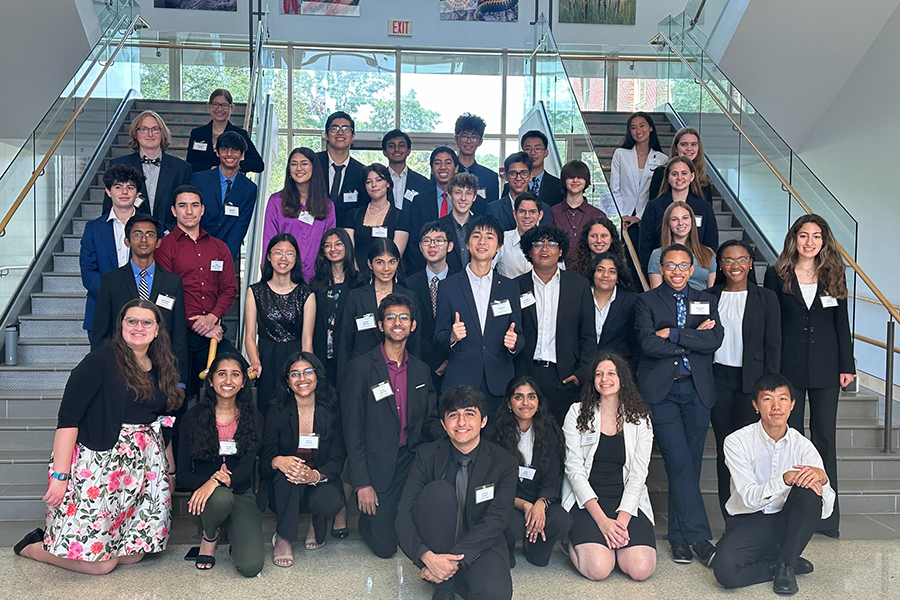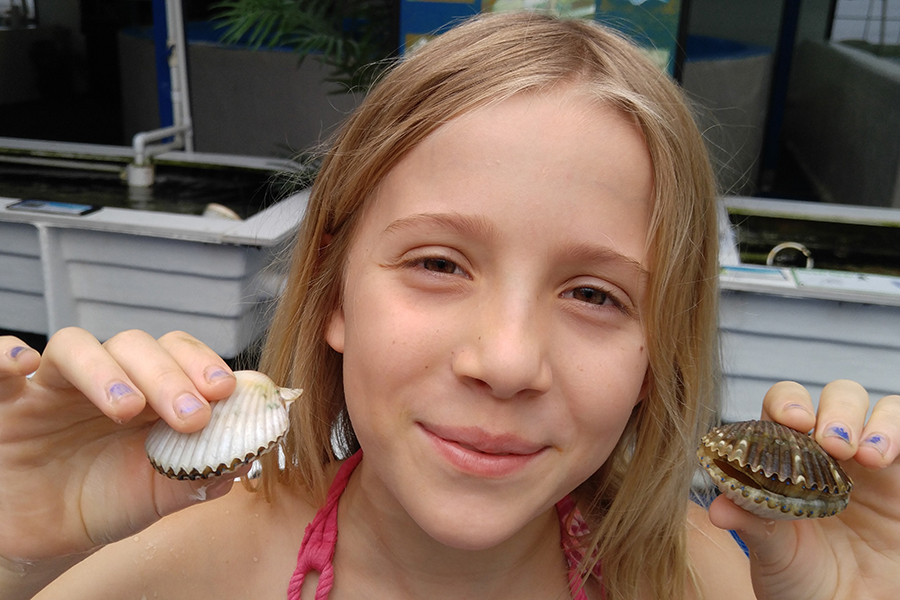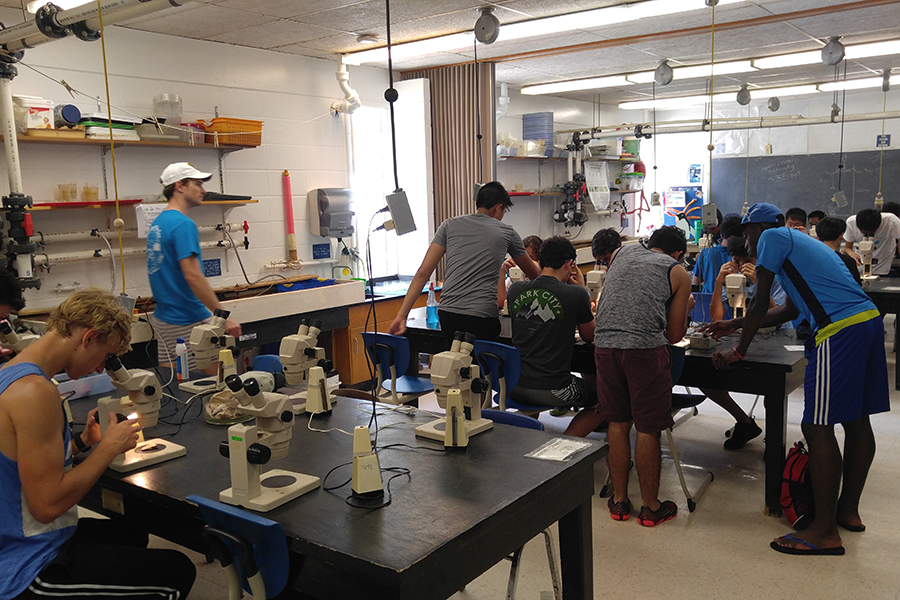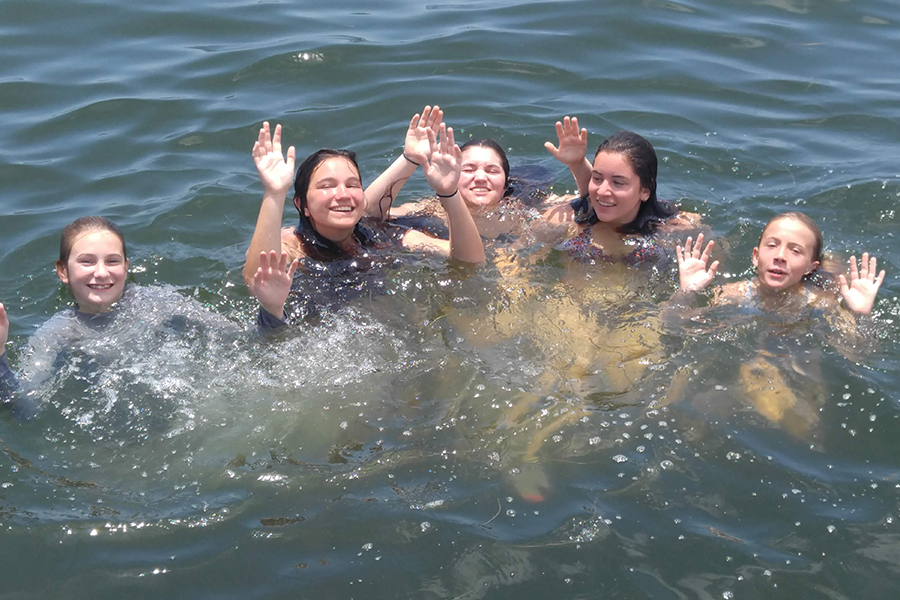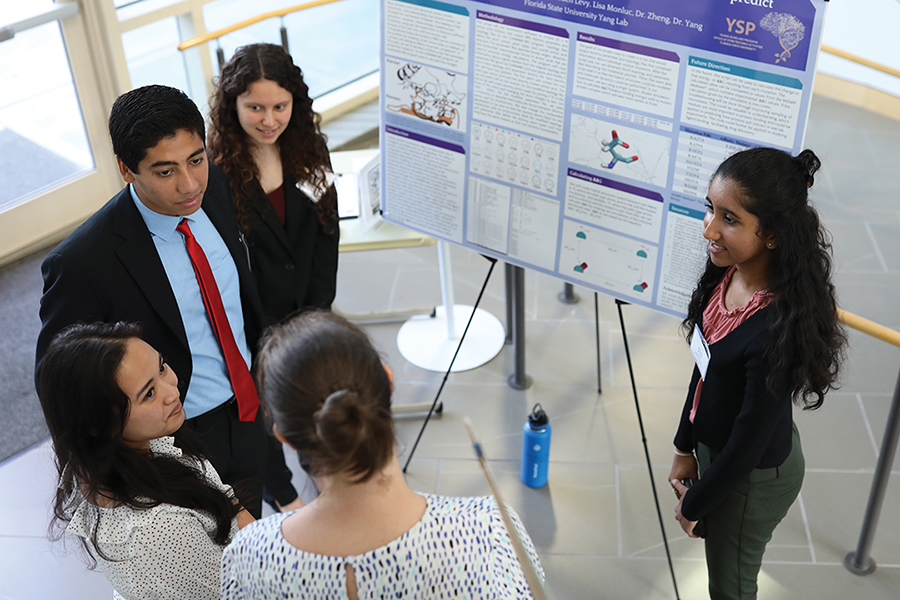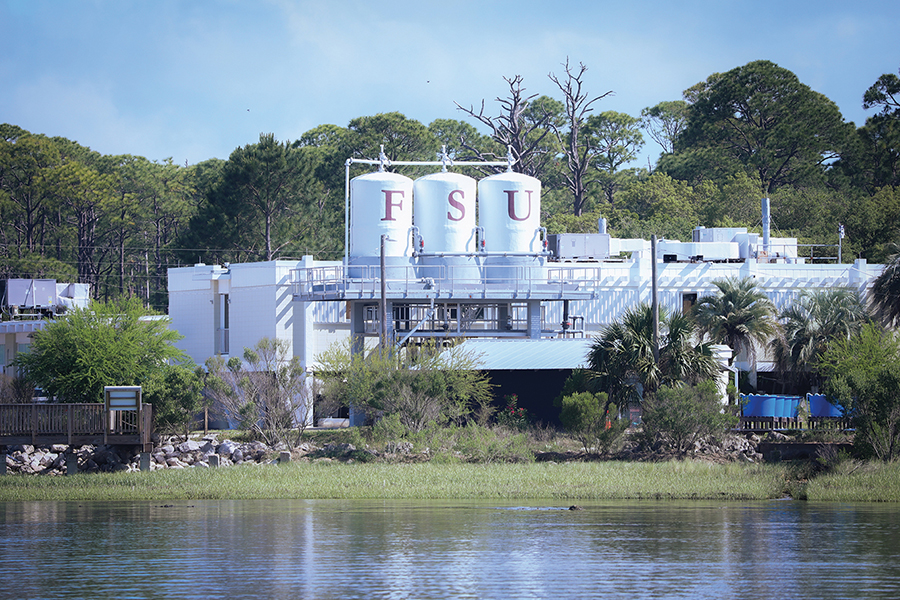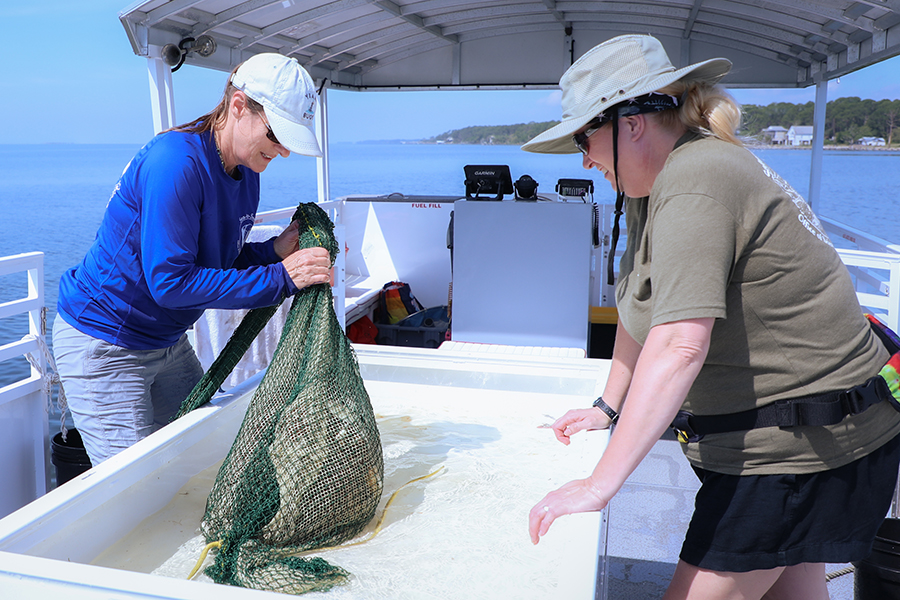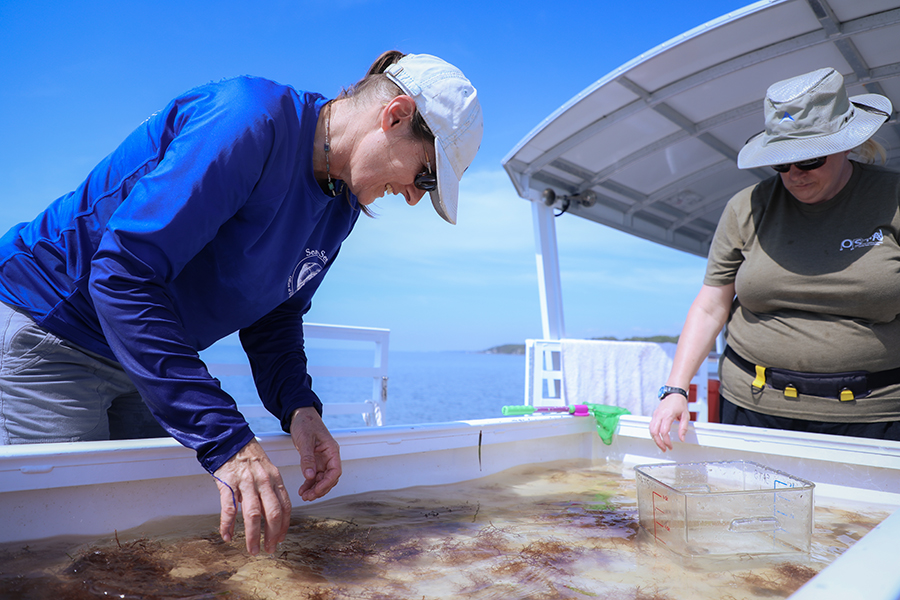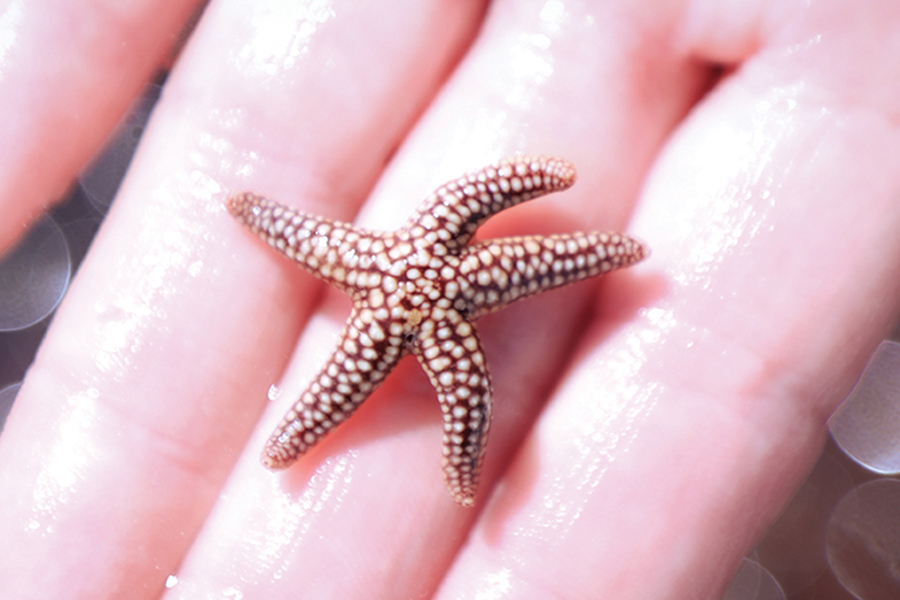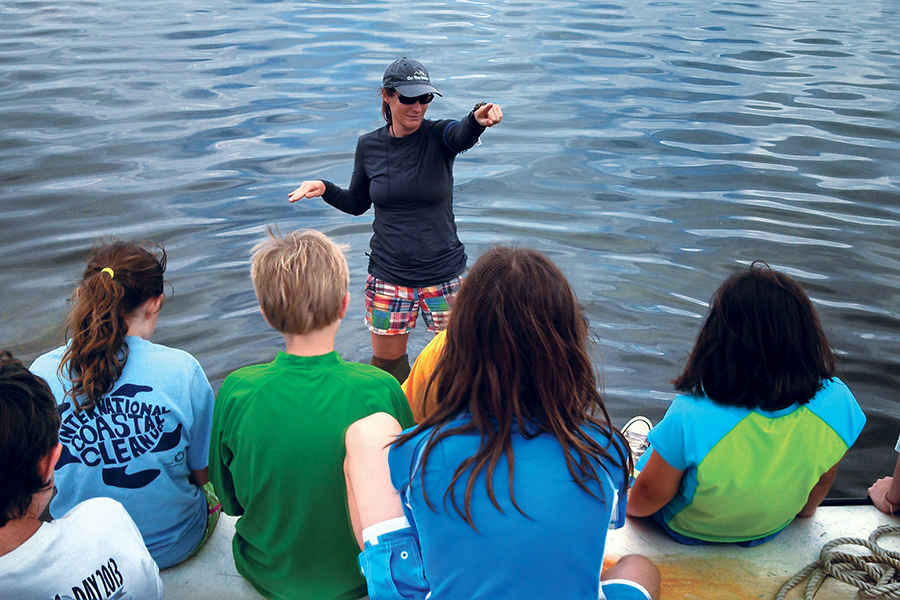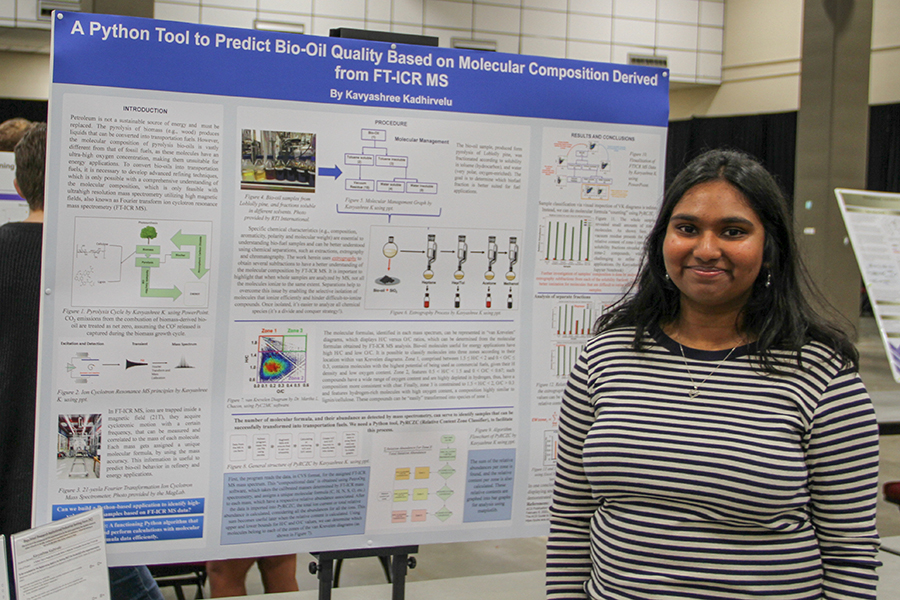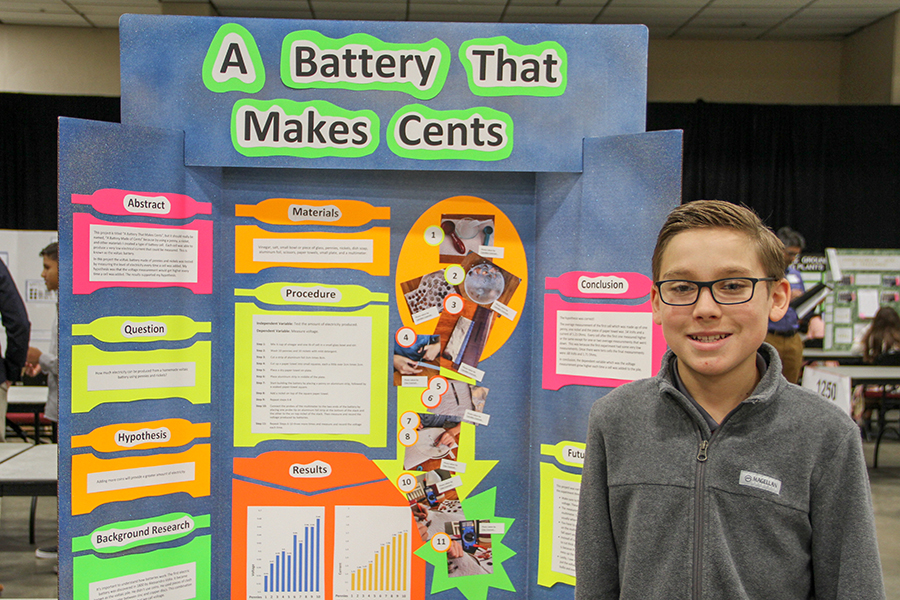Experiential Education
FSU’s Office of STEM Teaching Activities celebrates four decades of student-teacher outreach
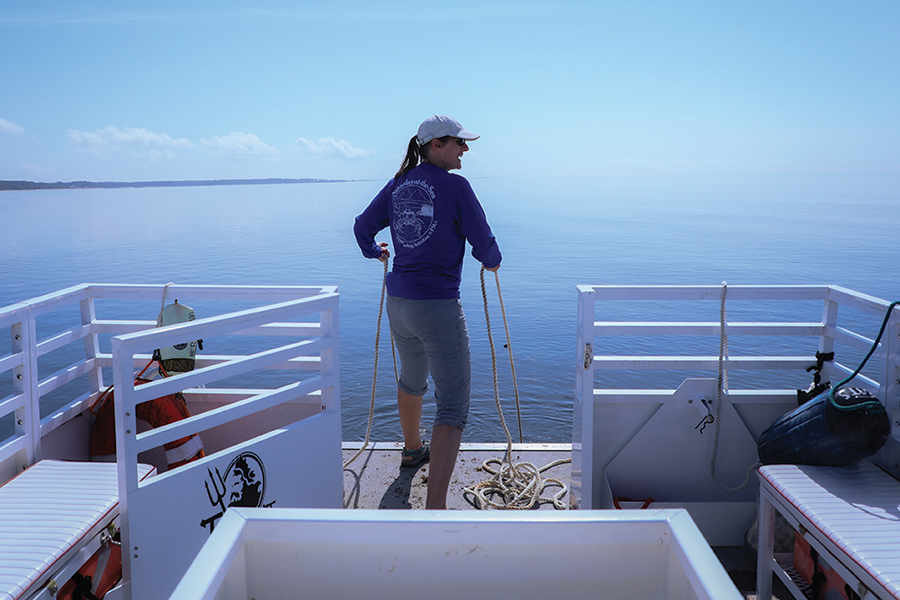
A child gingerly holds a live crab for the first time. A teacher boards a pontoon boat to receive hands-on training to teach their class about food webs on the nearby coast. A high school student works side-by-side with university students in a psychology lab.
These experiences are made possible by Florida State University’s Office of STEM Teaching Activities, or OSTA. For the past 41 years, OSTA has brought cornerstone experiences to classrooms across the state by connecting students and teachers from K-12 and beyond with hands-on instruction in science, technology, engineering and mathematics.
Bill Turner, director of OSTA’s Sea-to-See programs, believes the office helps excite students about learning and career possibilities in STEM fields.
“OSTA offers programs that introduce students to STEM in engaging and positive ways,” Turner said. “OSTA experiences show students that these are exciting fields to explore.”
Back in 1983, former associate vice provost Pat Hayward was an FSU Department of Biological Science faculty member when she read a National Commission on Excellence in Education report documenting 18 months of research on the U.S. education system. The report indicated a steady decline in science achievement scores, an increase in remedial mathematics courses offered in public four-year colleges, and increased rates of illiteracy, among other metrics.
Alarmed by the report’s findings, Hayward marched to then-College of Arts and Sciences dean Werner A. Baum’s office and proposed the formation of an office that would leverage FSU’s scientific strengths in service of the larger community.
“After reading the report, I recognized we were not doing enough for our local community,” Hayward said. “I knew our faculty members would be willing to do outreach if I organized it, and that’s how OSTA started.”
Hayward’s first implementation was the Young Scholars Program, a six-week summer intensive at FSU for rising Florida high school seniors to partake in science classes and research opportunities and get a taste of college life.
“YSP is more than an academic endeavor,” said Barbara Shoplock, YSP co-director. “The program pushes their thinking beyond what high school courses offer. Students gain exposure to cutting-edge research and cultivate essential knowledge that extends beyond the classroom.”
Under the direction of then-Robert K. Godfrey Professor of Biological Science Bill Herrnkind, Saturday-at-the-Sea, or SATS, was formed in 1985. What began as a day program for middle school students and teachers to explore Gulf Coast sea life at the FSU Coastal and Marine Laboratory in St. Teresa, Florida, has grown to host students multiple days a week. It also includes offshoots like SATS Summer Camp, a weeklong camp where local students nominated by their science teachers gain hands-on experience at the marine lab and explore research questions, and Sea-to-See, which brings marine invertebrates to local elementary schools for student enrichment.
“OSTA is a team of talented individuals transforming science and education research into successful programs that make STEM accessible for all.”
— Ellen Granger, FSU Office of STEM Teaching Activities director
OSTA has also evolved from science outreach to encompass mathematics, engineering and technology. These programs include the Capital Regional Science and Engineering Fair, which allows middle and high school students to compete in fields ranging from medicine to computer science; Great Explorations in Math and Science, or GEMS, which facilitates professional development for K-8 teachers in enhanced math and science instruction; and Science on the Move, a collaboration between OSTA and the FSU Department of Physics, which provides training and resources to K-12 students and teachers on the physical sciences.
Ellen Granger, OSTA’s current director, joined the office in 1991. She started out by obtaining grants for YSP, eventually working with then-provost Larry Abele to assemble a legislative package to secure funding for OSTA. Thanks to this work, OSTA’s funding has been a part of the university budget since 2000. Granger’s dedication to STEM education has been a guiding light for her work over the past 30 years.
“We want to promote science literacy for everyone in the country.” she said. “With so many socio-scientific issues in society, understanding how science works is crucial for people to be a viable part of that conversation.”
Granger’s team at OSTA includes Shoplock, who is director of SATS programs in addition to her YSP duties; Turner, who directs the Sea-to-See programs; and Todd Bevis, director of professional development programs and GEMS.
Shoplock started working as an instructor at SATS in 1995 while earning her master’s in biological science from FSU. The teaching environment at FSUCML led her to become a mainstay for the past two decades.
“It’s challenging to pull students out of their comfort zones,” she said. “SATS provides kids an authentic experience that puts science in a different context. They might begin a program looking at a pile of seaweed and saying, ‘I’m not touching that!’ but hours later, they’re respectfully picking hermit crabs out of the marsh to study. They file these experiences away and make connections that last a lifetime.”
The Sea-to-See program, like SATS, connects younger students with science by bringing the Gulf to them. Turner and his team visit classrooms around the state and give children a preview of adventures they can pursue with OSTA when they get a little older.
Turner’s background in vertebrate biology sparked an enduring passion for educating the community about lesser-known animals. He came to Tallahassee to work for the Florida Fish and Wildlife Conservation Commission as one of two resident biologists before joining OSTA over a decade ago.
“I always found time for outreach throughout my career and loved it,” Turner said. “When an opening came up at OSTA, I thought this was a once-in-a-lifetime opportunity.”
Bevis, like his colleagues, finds joy in outreach work. His background was in marine fisheries when he started graduate school at FSU — Bevis and Shoplock studied under the same major professor. His introduction to OSTA began by taking a group of SATS students on the pontoon boat. Bevis quickly realized many of the middle schoolers had never seen the Gulf of Mexico, and he was delighted at the prospect of providing students with novel experiences.
As director of professional development programs, Bevis now designs workshops supporting pedagogy in the classroom and supplying content knowledge for teachers to carry out these curricula. This work ranges from bringing teachers to the Coastal and Marine Lab to study sea life under a microscope and take a boat into the Gulf to explore the coast to providing STEM workshops to teachers across the state so they are best prepared to teach their students.
“By placing teachers back into the role of the student, they can experience science in a different way than simply reading a lesson plan,” Bevis said. “This model proves to be effective for successful implementation in the classroom.”
After four decades, OSTA’s core programs remain fresh, and more initiatives have been added. OSTA piloted the Create with Code! Summer Camp in 2023 to introduce high school students to Python coding and machine learning. The camp is a collaboration between OSTA and the Department of Scientific Computing, and the program is slated for continued development in 2025.
Looking back on her time as founder and director of OSTA, Hayward is blown away by the office’s endurance. She and Granger see the program’s continued success as a collaborative effort.
“It takes a strong combination of expertise, creativity, administrative excellence, and passion to bring high-quality STEM outreach programs to these communities,” Granger said. “OSTA is a team of talented individuals transforming science and education research into successful programs that make STEM accessible for all.”
Visit bio.fsu.edu/osta to learn more about OSTA’s programs and get involved.


